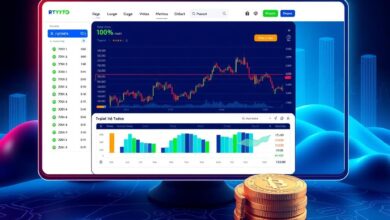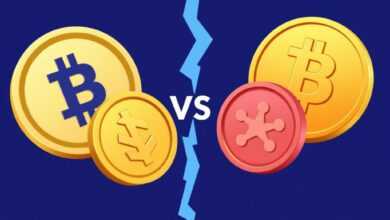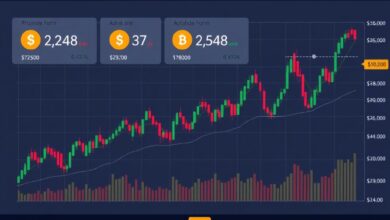How to verify a token before investing

Begin with a thorough research process on the project associated with the digital asset. Investigate the team behind it, their track record, and community feedback. A strong foundation often indicates reliability.
Conduct a detailed token check. Utilize reputable platforms to verify the contract address and ensure it matches official sources. This simple verification can prevent falling victim to a common scam.
Assess the project’s whitepaper carefully; it should clearly outline objectives, technology, and use cases. Look for transparency in communication; projects that hide information often raise red flags.
Join relevant forums or social media groups to gauge community sentiment. Engaged communities often provide insights that are not immediately apparent through formal channels. This collective knowledge can be invaluable in identifying potential pitfalls.
Check Project Whitepaper
Examine the project’s whitepaper thoroughly. A well-structured document should provide clear insights into the purpose, technology, and roadmap of the venture.
- Clarity: The language used must be straightforward. Avoid projects that employ convoluted jargon without explaining their concepts.
- Technical Details: Ensure the whitepaper includes information about the smart contract architecture. Understanding how the contract operates is key to assessing its legitimacy.
- Team Information: Look for detailed bios of team members. Verify their backgrounds through independent research to confirm their credibility in the industry.
- Tokenomics: Analyze token distribution, use cases, and economic incentives. Scrutinize how funds will be allocated and whether there’s a clear plan for sustainability.
- Roadmap: Check for realistic timelines and milestones. Projects lacking a coherent development timeline may signal potential scams.
A comprehensive review can reveal inconsistencies or red flags that warrant further inquiry or caution regarding potential investment risks.
If you encounter vague promises or absent details, consider this a warning sign. Conduct thorough verification before proceeding with any financial commitments related to the project.
Evaluate Team Credentials
Conduct thorough research on the individuals behind the project. Investigate their professional backgrounds, previous achievements, and involvement in related industries. A credible team should have verifiable experience in technology, finance, or blockchain development. Look for LinkedIn profiles and past project engagements to assess their track record.
Examine any public statements or interviews made by team members. This can provide insight into their vision and commitment to the project’s goals. Transparency is key; check if they openly share their identities and expertise. Anonymity may raise red flags regarding accountability.
Review partnerships and collaborations with recognized entities. Associations with reputable organizations can enhance credibility and indicate a higher level of security in project execution. Analyze endorsements from industry experts as well; positive testimonials can signify trustworthiness.
Finally, ensure that the smart contract has been audited by a reliable third party. Independent verification adds an extra layer of security and validates the technical integrity of the project’s framework, assuring potential investors of its robustness.
Analyze Market Performance
Examine historical price trends to understand the token’s trajectory. Look for consistent growth patterns and avoid projects with erratic fluctuations that may indicate underlying issues or potential scams.
Investigate trading volume across various exchanges. A healthy trading volume suggests active interest and liquidity, while low volume can raise red flags about security and market manipulation risks.
Analyze market capitalization relative to similar assets. A disproportionately high market cap compared to competitors might signal overvaluation, while a low cap could indicate untapped potential or lack of investor confidence.
Review social media sentiment and community engagement. Active discussions on platforms like Twitter and Reddit can provide insights into public perception and project developments, helping identify red flags or promising trends.
Utilize contract audits as part of your evaluation process. Ensure the smart contract has undergone thorough checks by reputable firms to reduce the risk of vulnerabilities that could lead to loss of funds.
Lastly, assess partnerships and collaborations within the industry. Strong affiliations with established entities often enhance credibility and stability, whereas isolated projects may face challenges in gaining traction.
Review Community Feedback
Assess the sentiment within online communities dedicated to cryptocurrency discussions. Platforms like Reddit, Telegram, and Discord often harbor real-time opinions and experiences from users. Look for consistent warnings about potential scams or fraudulent activities associated with the project.
Engage in conversations to gauge community trust levels. Positive feedback regarding a contract’s transparency and responsiveness from developers can indicate reliability. Conversely, red flags include unresolved complaints or repeated mentions of issues that suggest negligence.
Utilize tools for token check that aggregate user reviews and ratings. These resources can provide insights into how well the project addresses concerns raised by its user base. Check for patterns in feedback–frequent references to delays or lack of updates may signal underlying problems.
Research the project’s social media presence as well. A strong following coupled with active engagement often reflects a healthy ecosystem, while an absence of interaction may denote abandonment or lack of interest from the team.
Avoid placing confidence in projects with overwhelmingly positive feedback without any critical voices; this could be indicative of manipulated reviews. Balanced perspectives are a sign of authenticity.







